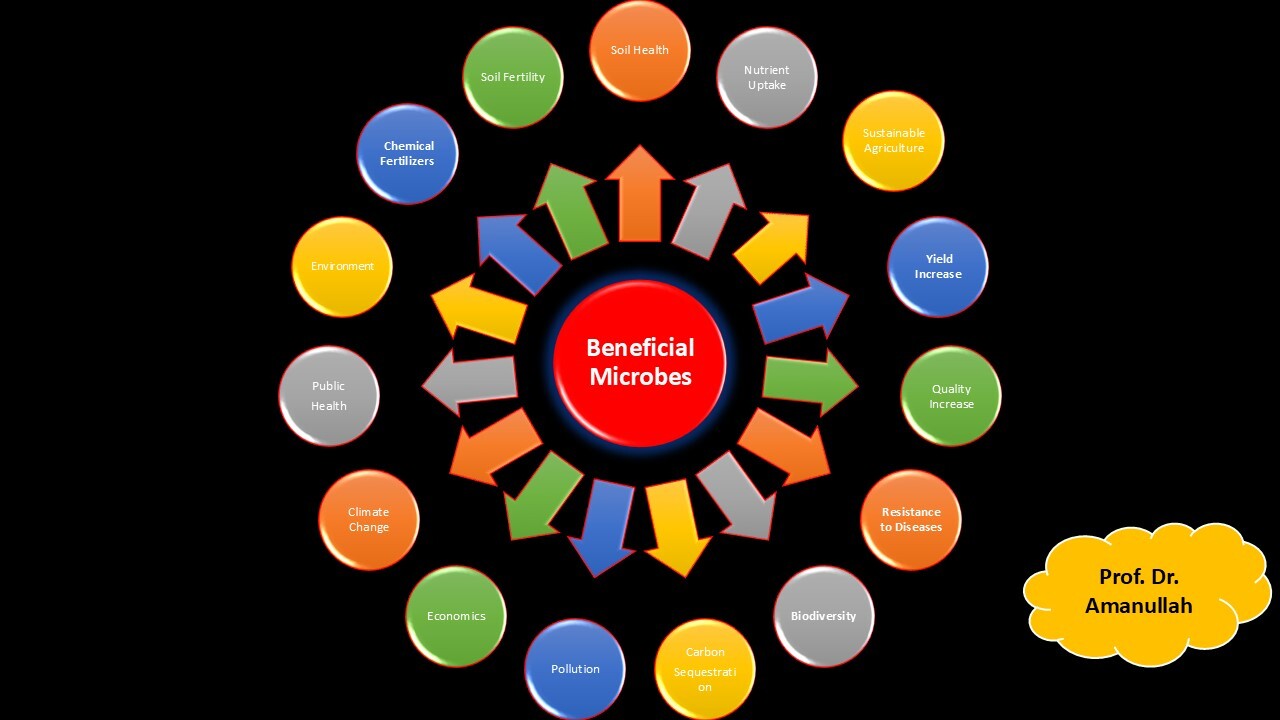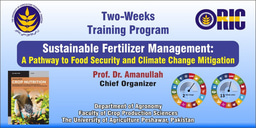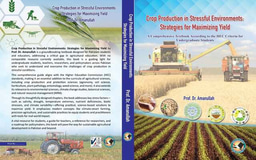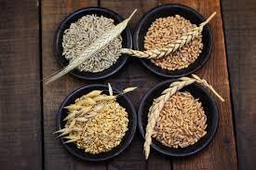Sustainable Agriculture through Beneficial Microbes: A Key to Crop Growth and Food Security
Published in Ecology & Evolution, Sustainability, and Agricultural & Food Science

Explore the Research
3296?utm_campaign=related_content&utm_source=HEALTH&utm_medium=communities
Sustainable Agriculture through Beneficial Microbes: A Key to Crop Growth and Food Security
In the face of growing global food demand and environmental challenges, the application of biofertilizers—beneficial microbes—presents a transformative approach to sustainable agriculture. Biofertilizers are microorganisms, such as nitrogen-fixing bacteria, mycorrhizal fungi, and phosphate-solubilizing microbes, that enhance crop growth, improve soil health, and reduce the need for chemical fertilizers. These microorganisms play a crucial role in the symbiotic relationships they form with plants, improving nutrient availability, particularly nitrogen and phosphorus, which are vital for crop development.
Enhancing Crop Growth and Yield
The primary benefit of biofertilizers is their ability to increase crop yield and quality. Through natural processes, they improve soil fertility by fixing nitrogen and solubilizing phosphorus, making these nutrients more accessible to plants. This not only boosts crop productivity but also ensures healthier and more resilient plants. As a result, biofertilizers have become an essential tool for improving food production efficiency, especially in resource-constrained agricultural settings.
Environmental Benefits and Sustainability
The use of biofertilizers is a key strategy in reducing the environmental footprint of agriculture. Unlike synthetic fertilizers, biofertilizers do not contribute to soil degradation or water pollution. They promote sustainable farming practices by enhancing soil structure, increasing organic matter, and fostering microbial diversity in the soil. This contributes to long-term soil health and resilience, helping to mitigate the negative impacts of intensive farming and climate change.
Promoting Food Security
As the world’s population continues to grow, ensuring food security becomes an ever-pressing challenge. Biofertilizers help address this by enhancing crop yields in a sustainable manner, which is crucial for meeting the rising demand for food. By improving soil fertility and crop health, biofertilizers support the consistent production of food while maintaining ecological balance. Moreover, their application can reduce the reliance on expensive synthetic fertilizers, making farming more economically viable for smallholders and farmers in developing regions.
Human Health and Economic Benefits
In addition to their environmental and agricultural benefits, biofertilizers contribute to human health. By reducing the use of harmful chemicals, biofertilizers help prevent the accumulation of toxic residues in food, ensuring safer and healthier crops for consumption. Furthermore, by lowering input costs for farmers and improving crop productivity, biofertilizers offer significant economic benefits, enhancing the profitability of farming operations.
Conclusion
The use of biofertilizers represents a sustainable solution that aligns with the global push for more ecologically responsible farming practices. They are an invaluable resource in the quest for food security, environmental sustainability, and improved human health. As more farmers adopt biofertilizer technologies, we move closer to realizing a future where agriculture not only meets the needs of a growing population but does so in harmony with the environment. It is time for biofertilizers to take center stage in sustainable agricultural practices, driving the next wave of innovation in food production.
Follow the Topic
What are SDG Topics?
An introduction to Sustainable Development Goals (SDGs) Topics and their role in highlighting sustainable development research.
Continue reading announcement




Please sign in or register for FREE
If you are a registered user on Research Communities by Springer Nature, please sign in
Amanullah, Khan U. Advancing sustainable agriculture with beneficial microbes: Enhancing crop growth and yield for food security and human
health. Advances in Modern Agriculture 2023; 4(2): 2426. doi: 10.54517/ama.v4i2.2426